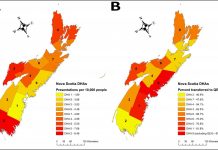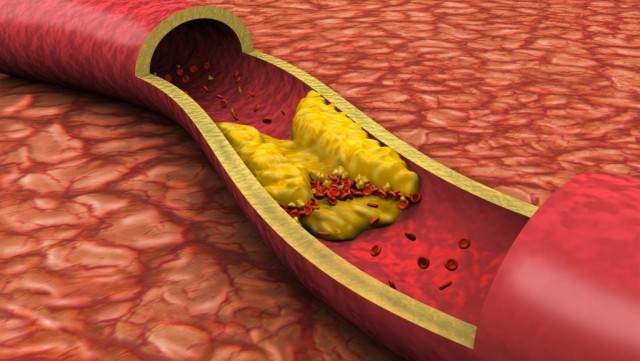September 2002 � A mental state known as vital exhaustion may increase blood clotting, helping to explain why it is associated with a heightened heart attack risk, according to a study conducted in the Netherlands.
Other studies have found the medical condition known as vital exhaustion more than doubles the risk of a first heart attack, but it is not yet fully understood how. Vital exhaustion is a state of excessive fatigue, irritability and hopelessness. People experiencing this condition feel that everyday activities require immense effort, and they find it very difficult to motivate themselves.
People often attribute vital exhaustion to life stresses, being overworked or having a significant experience of loss. Some have suggested that vital exhaustion is a mental state people reach when their stress coping resources have stretched to the limit and have broken down, according to the study, led by Rob van Diest, Ph.D., of the Department of Psychiatry and Neuropsychology at Maastricht University in the Netherlands.
Van Diest and colleagues compared blood samples from two groups of 30 study participants. One group had been classified as vitally exhausted through a 23-item questionnaire called the Maastricht interview for vital exhaustion. The other group, which served as a control group, tested negative for vital exhaustion. All the study participants were nonsmokers and in good health.
The blood tests of the vitally exhausted participants differed from the control group in several ways, the researchers found. Their study results are published in the September/October issue of the journal Psychosomatic Medicine.
Continue Reading Below ↓↓↓
The participants with vital exhaustion tended to have higher blood levels of a protein called fibrinogen, a protein that causes the blood to clot. High fibrinogen levels can lead to excessive blood clotting that can cut off or drastically minimize blood flow to the heart or brain, and previous studies have found that high fibrinogen levels increase heart attack risk.
Vital exhaustion was also associated with decreased early morning fibrinolysis, which is the process by which blood clots break down.
"We suggest that these [blood] changes provide a potential � mechanism by which vital exhaustion is related to heart attack," van Diest concludes.
This research was supported by grants from the Dutch Heart Foundation and the National Institute of Health.
Source: Center for the Advancement of Health










